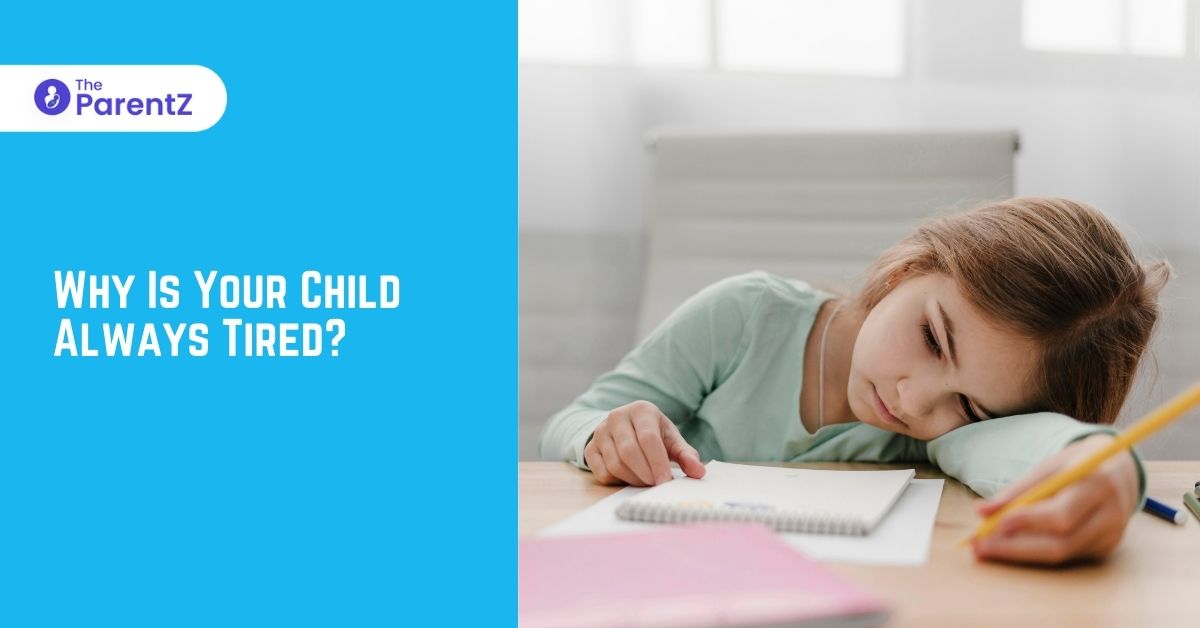Do you have a tired child? It is quite normal for children to feel exhausted at times. Things might get a little troublesome if your child feels exhausted very often. Most mothers feel concerned when their child does not want to play and low activity levels persist for a long time. Try finding the cause of child fatigue in your child’s lifestyle and diet. Minuscule changes to lifestyle and diet can serve as great solutions for chronic tiredness. If things are getting out of control, it is better to get the child to a healthcare specialist.
Reasons behind Exhaustion in Children:
A look at a few common reasons leading to exhaustion in children reveals a trend that is of great concern.
- Dehydration is the very first thing you need to rule out if you find your child getting tired frequently. Always ask your little one to have a glass of water every time they feel tired. Your body is over 70% water and it will not function properly if it is not hydrated. The best way of assisting proper hydration habits in your child is by being an inspiration for him. Get yourself into the habit of drinking water regularly, as kids learn by imitating parents. Offer a glass of water to your kid whenever you drink water yourself.
- Children require restful and adequate sleep to amass sufficient energy to be active the next day. Hence, if you find your child having problems falling asleep, you need to get it treated as soon as possible. Irregular sleeping patterns of your kid will make your little one feel tired. The sleep requirements of every child are different. It is important to figure out what your child needs. Ensure sound sleep night after night. Encourage younger kids to nap more often. Sleep deprivation can be the cause for chronic fatigue.
- Mood and mental health-related problems can also have a significant effect on the energy of your child. Such issues can even result in depression and anxiety. When a child suffers from anxiety, his bodily systems go haywire. Hence, kids might feel low on energy when they face anxiety. Therefore, addressing the anxiety would be the key to correcting your child’s fatigue. In the case of depression, imbalance in the chemicals of the brain might result in a child feeling fatigued and sluggish. For children experiencing the signs of depression, parents need to get to the main cause of it for supporting their levels of energy. Do try to get professional help if required.
- Children today are forced into living busy lives. They are grossly overscheduled with activities. Even children require daily downtime. They can also get bored and complain, which parents may dismiss as an excuse. It might be a tad difficult to help a child cope up with her busy schedule. Some children might take up tons of activities happily, while others might get overwhelmed very easily. Anxiety in being over busy can tire out a young child. Know your child’s capacities and do not put undue pressure on him.
- Children are overstimulated very easily. After all, how much pressure can a child cope up with? Sensitive children get exhausted very easily. For instance, children who have autism or ADHD might feel tired even after a day at school. They are not able to handle the things that take place one after another. Changing your child’s schedule might help in avoiding exhaustion. Keep their weekends free and find schedules that work for them.
Working with healthcare professionals will always help you find the right solutions. Tiredness can be cured easily with rest, proper nutrition and care.






